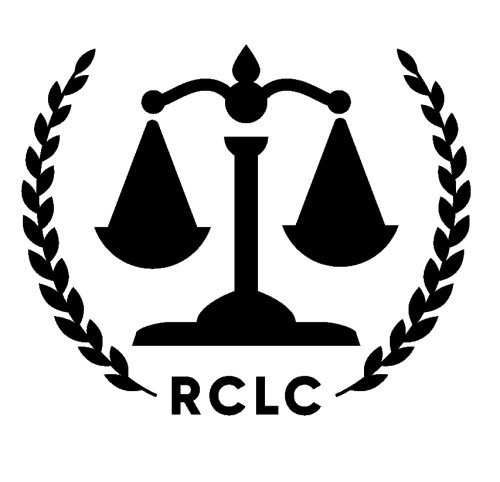Best Corporate Governance Lawyers in Harare
Share your needs with us, get contacted by law firms.
Free. Takes 2 min.
List of the best lawyers in Harare, Zimbabwe
About Corporate Governance Law in Harare, Zimbabwe
Corporate governance refers to the framework of rules, practices, and processes by which companies are directed and controlled. In Harare, Zimbabwe, corporate governance holds a central place in both public and private business sectors. It encompasses the mechanisms that balance the interests of shareholders, management, customers, suppliers, financiers, government, and the community. The principal purpose of corporate governance is to promote accountability, transparency, and ethical conduct. Zimbabwe has made significant efforts to align its corporate governance standards with international best practices, especially after the introduction of the Zimbabwe National Code on Corporate Governance and amendments to the Companies and Other Business Entities Act.
Why You May Need a Lawyer
There are several scenarios in which engaging a legal professional specializing in corporate governance becomes essential in Harare, Zimbabwe, including:
- Forming a new company and ensuring compliance with local statutes
- Drafting or reviewing company constitutions, shareholder agreements, and other foundational documents
- Advising on board responsibilities and director duties
- Resolving internal disputes among shareholders or board members
- Managing risk and ensuring regulatory compliance
- Undertaking due diligence for mergers, acquisitions, or restructuring
- Addressing breaches of fiduciary duty, conflicts of interest, or fraud allegations
- Responding to government investigations or audits
- Setting up governance structures or frameworks for nonprofit entities
A lawyer with experience in corporate governance will provide guidance on complex legal requirements and represent your interests in dealings with authorities or other stakeholders.
Local Laws Overview
Corporate governance in Harare is primarily governed by the Companies and Other Business Entities Act [Chapter 24:31], which came into operation in February 2020. This Act sets out the obligations of directors, officers, and companies at large. Additional regulations are outlined in:
- The Zimbabwe National Code on Corporate Governance (ZIMCODE), which provides guidelines and best practices for both private and state enterprises
- Zimbabwe Stock Exchange (ZSE) Listing Rules for publicly listed companies
- The Public Entities Corporate Governance Act, which focuses on parastatals and public bodies
- Sector-specific regulatory frameworks (such as in financial services, mining, insurance, or telecommunications)
Key legal principles include the requirement for companies to have at least two directors, directors’ fiduciary duties, mandatory disclosure of conflicts of interest, annual general meetings, audited financial statements, stakeholder engagement, and whistleblower protection measures.
Frequently Asked Questions
What is the main law governing corporate governance in Harare, Zimbabwe?
The primary statute is the Companies and Other Business Entities Act [Chapter 24:31], complemented by the Zimbabwe National Code on Corporate Governance (ZIMCODE).
Do all companies in Harare have to follow the ZIMCODE?
ZIMCODE is a set of best practice recommendations, but most listed companies and public sector entities are required to adhere to its principles, while private companies are encouraged to follow them.
What are the main duties of company directors under Zimbabwean law?
Directors must act in good faith, exercise care and skill, avoid conflicts of interest, comply with law and company constitutions, and prioritize the company’s best interests.
Can a foreigner serve as a company director in Zimbabwe?
Yes, foreigners can serve as directors, but at least one director must be ordinarily resident in Zimbabwe.
What is the liability of directors for company debts or misconduct?
Directors can be held personally liable for company debts or penalties if found guilty of misconduct, fraud, or acting in breach of duties.
How often must companies hold annual general meetings?
Every company incorporated in Zimbabwe is required to hold an annual general meeting once every calendar year.
Are company records and financial statements required to be audited?
Yes, companies are required to keep proper financial records and have their financial statements audited according to the Companies Act.
What happens if a company fails to comply with corporate governance laws?
Non-compliance can lead to administrative penalties, fines, deregistration, and possible criminal prosecution of directors.
How are disputes among shareholders or directors resolved?
Disputes can be resolved through shareholder agreements, formal mediation and arbitration, or via litigation in Zimbabwean courts as a last resort.
Are there specific rules for state-owned enterprises?
Yes, state entities must comply with the Public Entities Corporate Governance Act, which sets higher standards for transparency and accountability.
Additional Resources
For individuals seeking further information or support in corporate governance matters in Harare, the following resources may be helpful:
- Registrar of Companies - Office for company registration and statutory filings
- Zimbabwe Stock Exchange - Offers corporate governance guidelines and listing requirements
- Institute of Directors Zimbabwe - Provides training and advocacy on directorship and governance
- Zimbabwe Law Society - Can assist in connecting with qualified legal practitioners
- Zimbabwe National Chamber of Commerce - Business advocacy and support services
- Public Entities Corporate Governance Unit - Oversees public sector governance
Next Steps
If you need legal assistance with corporate governance issues in Harare, Zimbabwe, consider the following steps:
- Identify your precise needs, whether it is company formation, director disputes, compliance, or regulatory advice
- Gather all relevant documents, such as incorporation papers, shareholder agreements, or board resolutions
- Schedule a consultation with a registered legal practitioner who has expertise in corporate governance
- Ask about their experience with cases similar to yours and discuss possible strategies
- Stay informed about your obligations under the Companies Act and related regulations
- Maintain records of all legal advice received and decisions taken for future reference
Legal matters can be complex - timely and informed legal guidance can help you protect your company and its leadership from risk, ensure regulatory compliance, and promote lasting business success.
Lawzana helps you find the best lawyers and law firms in Harare through a curated and pre-screened list of qualified legal professionals. Our platform offers rankings and detailed profiles of attorneys and law firms, allowing you to compare based on practice areas, including Corporate Governance, experience, and client feedback.
Each profile includes a description of the firm's areas of practice, client reviews, team members and partners, year of establishment, spoken languages, office locations, contact information, social media presence, and any published articles or resources. Most firms on our platform speak English and are experienced in both local and international legal matters.
Get a quote from top-rated law firms in Harare, Zimbabwe — quickly, securely, and without unnecessary hassle.
Disclaimer:
The information provided on this page is for general informational purposes only and does not constitute legal advice. While we strive to ensure the accuracy and relevance of the content, legal information may change over time, and interpretations of the law can vary. You should always consult with a qualified legal professional for advice specific to your situation.
We disclaim all liability for actions taken or not taken based on the content of this page. If you believe any information is incorrect or outdated, please contact us, and we will review and update it where appropriate.
















